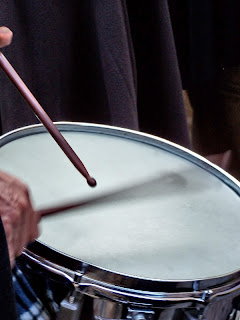Disclaimer: Please read this first.
This blog post is a gut reaction, and it's just my opinion. I thought long and hard about whether I should even post it. It's rough, it's somewhat undeveloped, and it may be less than tactful. I may even overstate or overgeneralize a few things. But I believe in right and wrong. And I believe that you and I have the power to do something to make the world a better place. With that in mind, please forgive the rougher edges of this blog post. And thank you for reading. As always, I appreciate your thoughtful comments and insightful feedback.
-----------------------------------------------------------
Something's got to give.
In the aftermath of the awful movie theater shooting in Aurora, CO, during the premier of the latest Batman movie, a stark realization has become apparent.
We have gone too far. All of us have.
This is not a new opinion, but it's truly shocking what we'll tolerate in our music, TV, movies, theatre, video games, literature, poetry, painting and more. And we call it,"entertainment."But when anything similar happens in real life, it's suddenly a tragedy and an outrage. Honestly,
what do you expect?
No, you're not the one pulling the trigger, but you might be supporting some very disturbing trends in our society either by financial support - such as the purchase of tickets, albums or the like - or by tacitly approving by doing nothing.
I'm by no means an expert on parenting or social evolution, but it seems obvious that if you tolerate something without speaking out about it, it is assumed that you approve of it. For example, your child does something that you don't want them doing, and they know you see them, but you decide to let it slide. Your child will think, "Hmm. Mom knows I did it, but she didn't say anything. That means it's okay." And more than likely, what you're actually seeing as the parent is nothing compared to what they're doing when they know you're not looking.
A very vocal, visible class of artists, musicians and movie-makers (no, not all of them) are no different. They're even more predictable, actually, than your children are. If sex and violence sell, then more sex and more violence will sell even more. Some producers will even admit that they're actually trying to, "push the envelope," to get as much smut into their art/music/movie/game as they can.
Have you listened to mainstream radio lately? It's downright offensive. Nobody I know, or grew up with, or went to school with was anywhere close to that promiscuous. Nobody partied like that or was that reckless, undisciplined and weak. But many popular recording artists would have you believe that the lifestyle they portray is normal - that everybody is doing it.
I'll cut to the chase: it's my belief that the arts, and specifically music, are supposed to make us better. Not only should they make us better individuals, but better families, communities and nations. And if they don't make us better, they're making us worse. It's like gravity, and - increasingly - there's no middle ground.
Yes, I get freedom of speech and expression. I get that arts are a reflection of society. But isn't it time that we reflect more of what's good about humans? More about what good humans are capable? More of what will make us happy, rather than what will feed our appetites?
It seems to me that 10% of the people are producing 90% of the art, and those 10% are setting the tolerances for the other 90% of us. And we're paying for it, literally and figuratively.
We have gone too far.
Or maybe we haven't.
Maybe the 90% of us haven't gone far enough.
Maybe this is a pessimistic view, but I prefer to think of it as realistic. If you agree, and you think things are bad and getting worse, I ask you to do something about it. Not anything drastic, just consistent.
If there's a song on that doesn't fit your values, turn it off. Same with movies, TV, video games and the like. If you go to a movie, have the guts to walk out if it crosses your line - regardless of the ticket price. And if people ask you about it, tell them! You don't have to be preachy or annoying about it, just decide where your lines are, and stick to them. Trust me - somebody out there will see your example and follow it.
And if enough of us stop being quiet, and stop shelling out dollars, maybe we can make small changes in our world. And maybe small changes will turn into big changes.
Thanks for reading. Thanks for thinking. And thank you in advance for supporting art that makes the world a better place.
That's the place I want to live.
 Well, it’s like that for drummers, too. The minute somebody finds out you play, they’re all, “So, hey, what about Neil Peart, huh? You must love Rush, right?” I’m the kid who deliberately avoided all things Rush and Peart for years. No, decades. Religiously, you might say.*
Well, it’s like that for drummers, too. The minute somebody finds out you play, they’re all, “So, hey, what about Neil Peart, huh? You must love Rush, right?” I’m the kid who deliberately avoided all things Rush and Peart for years. No, decades. Religiously, you might say.* 












